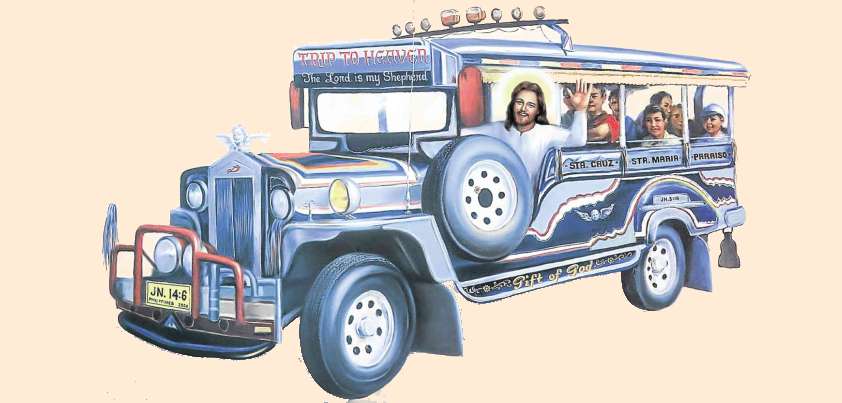 In this Etgar Keret story, a bus driver cares more about social justice than kindness. This may explain why he didn’t get the job he really wanted – to be God. The driver’s attitude suddenly changes when he has an epiphany moment witnessing the misery of Eddie, the world’s nicest loser, who is running late for an important date. Eddie believes that he has found true love in ‘Happiness’, the world’s sweetest girl. Unfortunately, Happiness proves to be a little too sweet. She is planning to stand Eddie up rather than hurt his feelings by admitting she already has a boyfriend.
In this Etgar Keret story, a bus driver cares more about social justice than kindness. This may explain why he didn’t get the job he really wanted – to be God. The driver’s attitude suddenly changes when he has an epiphany moment witnessing the misery of Eddie, the world’s nicest loser, who is running late for an important date. Eddie believes that he has found true love in ‘Happiness’, the world’s sweetest girl. Unfortunately, Happiness proves to be a little too sweet. She is planning to stand Eddie up rather than hurt his feelings by admitting she already has a boyfriend.
Original Text / PDF (1,393 words)
General Comments & Analysis
This is the title story in Keret’s The Bus Driver Who Wanted To Be God & Other Stories, a collection of surreal tales that deal in one form or another with death and the after-life.
The story packs a lot into less than 1400 words. One reason for this is that is that the third person omniscient narrator is privy to the thoughts and feelings of both the protagonist (bus driver) and his foil (Eddie). Although not explicitly stated, the plot suggests that both feel they are missing a meaning or purpose in their lives. For the unnamed driver, his wish to be God and fixation on social justice reflect a desire for recognition and respect. For Eddie, the need is more primal… someone to share his disorganized existence with.
Both characters face daily conflict. For the driver, the conflict is external between his social fairness ideology and the needs and sometimes irate reactions of tardy passengers (Man vs. Man). Eddie’s habitual lateness is an internal (Man vs. Self) conflict that also leads to external (Man vs. Man) conflicts in his work and personal life.
The driver experiences an “A-ha!” moment when he sees Eddie, kneeling and exhausted, at the bus door. This brings back the promise he had made to himself (to be merciful and kind to all His creatures) when thinking about the God-job.
For both characters, resolution comes at the end of the story with the driver’s sad wink to Eddie in the rear-view mirror. We are told in the intriguing final sentence that this somehow made the whole thing almost bearable. Why would the wink be described as “sad”, and how could it help Eddie feel better? One answer is that the characters now share a special bond. The driver has broken his ‘no waiting’ rule for the first time; Eddie is the only running passenger he has ever stopped for.
An interesting question is the possible symbolism of the bus. Could it be that, when rejected for the God-job, the driver was instead made responsible for taking people (souls) to Him? This may explain why he only picks up people who are on time (ready) for the journey. Eddie has an unhappy life and is desperate to find (eternal) Happiness. The driver mistakenly picks him up in a moment of compassion, and has no option but to wait and take Eddie back home when he doesn’t find Happiness.